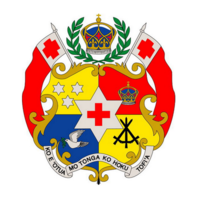Early Grade Reading Assessment 2009
Tonga, 2009
Identification
SPC_TON_2009_EGRA_v01_M
Early Grade Reading Assessment 2009
| Name | Country code |
|---|---|
| Tonga | TON |
Administrative Records, Education (ad/edu]
Diagnostic Assessment
The 2009 Tonga Early Grade Reading Assessment (EGRA) was conducted in a sample of 1,203 students from 60 randomly-selected primary schools in the Kingdom of Tonga. The Tonga EGRA was carried out in November, 2009 by consultants and staff of the Ministry of Education, Women's Affairs and Culture (MEWAC) with financial support from the Australian Agency for International Development (AusAID), the New Zealand Agency for International Development (NZAID), and the Education for All - Fast Track Initiative (EFA-FTI). Technical assistance and management support was provided by the World Bank.
The Early Grade Reading Assessment (EGRA) is an oral student assessment designed to measure the most basic foundation skills for literacy acquisition in the early grades: recognizing letters of the alphabet, reading simple words, understanding sentences and paragraphs, and listening with comprehension.
The USAID Education Data for Decision Making (EdData II) project developed the EGRA methodology and has applied it in 11 countries and 19 languages. It has been adopted and used by other implementing partners in more than 30 other countries and more than 60 other languages. Data from EGRA have been used for feedback on teacher practice in rigorous but easy-to-understand ways. Many countries have shown an interest in using it as a springboard to improve reading, and have gone on to redesign their teacher training around reading.
Sample survey data [ssd]
student, teacher, clusters of schools
Scope
National diagnostic assessment of basic reading skills in grades 1 to 3 in Tongan.
Coverage
National representative
All primary schools in the country.
Producers and sponsors
| Name |
|---|
| Ministry of Education |
| Women’s Affairs and Culture |
| Name | Role |
|---|---|
| World Bank | Technical assistance and management support |
| Name | Role |
|---|---|
| Global Partnership for Education | Financial support |
| Australian Agency for International Development | Financial support |
| New Zealand Agency for International Development | Financial support |
| Education for All – Fast Track Initiative | Financial support |
Sampling
Random stratification of schools by district; random selection of students among all classrooms in a grade tested.
On October 12 and 13, 2009, a series of preparatory meetings took place to discuss the scope and purpose of the survey. MEWAC was mainly interested in generating baseline data on average reading skills in Classes 1 to 3 to (a) identify areas where additional instruction is needed, to (b) inform the establishment of reference reading standards that can help educators monitor student's reading progression throughout the school year. With advice from the World Bank, MEWAC chose a national representative sample with contrast groups according to class level (Classes 1, 2, and 3). The final sample design did not incorporate contrast groups by school type and regions, thus, survey results can only suggest estimates by class level and gender.
The target population was defined as students enrolled in Classes 1 to 3 in primary schools implementing the national curriculum in Tongan language. Using the 2008 School Census completed in March of 2009 as a sample frame, a sample of 60 schools was selected using a stratified random design with proportional allocation based on school type -single-class (SCT), composite-class (CCT), and multi-class (MCT)- and region, to ensure all school types and regions would have a probability of selection equal to their actual distribution in the country. The final sample consisted of 1,203 students -607 girls and 596 boys- which reflects the gender parity characteristics of the target population.
For the 171 teachers surveyed, the overall response rates to the survey items are above 86%. For the 1,203 students in the sample, the overall survey response rates are above 93%.
Survey instrument
Tonga EGRA Student test, student questionnaire, teacher questionnaire, classroom observation snapshot.
Data collection
| Start | End |
|---|---|
| 2009-11-09 | 2009-12-12 |
Data collection took place between November 09 and December 12, 2009. Over a period of 5 weeks, teams of enumerators and supervisors visited sample schools in the country. Complete survey documents were brought back to Nuku'alofa by the TEGRA team members for marking.
Data processing
Data entry took place between January 25 and February 05, 2010.
Depositor information
| Name | Affiliation |
|---|---|
| Kristen Andrew McDonall | World Bank Group |
Data Access
Use of the dataset must be acknowledged using a citation which would include:
- the Identification of the Primary Investigator
- the title of the survey (including country, acronym and year of implementation)
- the survey reference number
- the source and date of download.
Example,
United States Agency for International Development, RTI International. Tonga Early Grade Reading Assessment (EGRA) 2009, Ref. TON_2009_EGRA_v01_M. Dataset downloaded from [url] on [date].
Disclaimer and copyrights
The user of the data acknowledges that the original collector of the data, the authorized distributor of the data, and the relevant funding agency bear no responsibility for use of the data or for interpretations or inferences based upon such uses.
Contacts
| Name | Affiliation | |
|---|---|---|
| Myrna Machuca-Sierra | World Bank Group | [email protected] |
| Tasha Sinai | World Bank Group | [email protected] |
Metadata production
DDI_SPC_TON_2009_EGRA_v01_M
| Name | Affiliation | Role |
|---|---|---|
| Development Data Group | The World Bank | Documentation of the DDI |
2015-07-28
Metadata version
Version 01 (July 2015)
